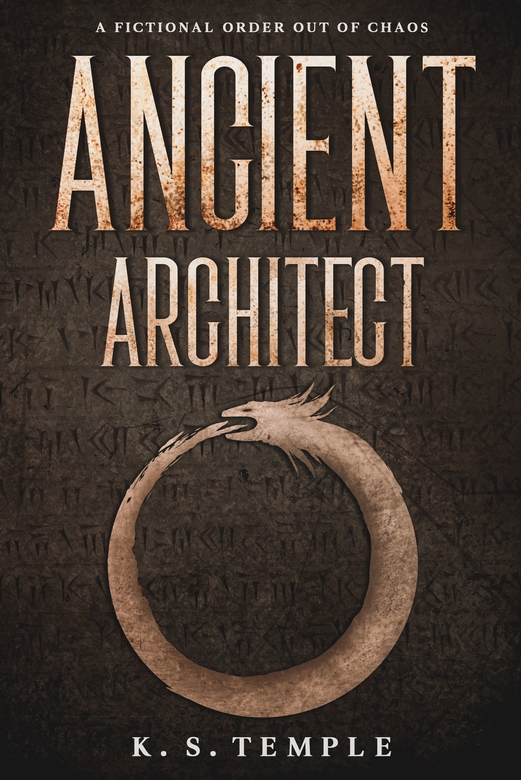
Exploring new-age ideologies, ancient mysticism, and one man’s journey toward unexpected destiny, Ancient Architect: A Fictional Order Out of Chaos by K.S. Temple is a heady novel of self-discovery.
Initially spurred on by his struggle to find peaceful sleep, Emmanuel seeks out Dr. Madruga, who begins to reveal the truth about the subject matter of his dreams – and nightmares. Before her untimely arrest, he undergoes an unusual neurological study with the good doctor, during which it is revealed to him that he may be the second coming of Christ.
He takes this daunting news well, albeit jokingly at first, but it is as though his eyes have been opened, and he can see the connections and meaning in everything around him. Unfortunately, one very real question haunts him – is he destined to save the world as Christ reborn, or is he actually the Anti-Christ, destined for an eternal cage or endless carnage?
Emmanuel is the fascinating heart of this mind-being read, though he often seems swept along by external forces, and doesn’t show much personal agency in the monumental shifts within his own life. His obsession with impersonating divinity, his writing of the Next Testament, and the high stakes of his 33rd cosmic Christmas drive him into a different chapter of mystical studies, and the second part of this novel is where the drama truly takes off. From abstract hallucinations and divine interrogations to yogic quests and dangerous delusions of grandeur, this novel pushes the boundaries of belief, and challenges the fabric of secular reality.
Building a new version of the self and filling up personal emptiness are driving forces from the very beginning of the novel, functioning as long-running themes to which a wide variety of readers will relate. There is also an otherworldly quality to the events of this story, which elevates the novel to one that questions both the existential and the divine. The collision of metaphysical concepts with the superficial fervor of Los Angeles makes for an interesting setting, similar to Dan Brown’s couching of ancient mysteries within modern paradigms, along with a healthy blur of symbology, history, anatomy, neuroscience, numerology, philosophy, and higher powers.
The author’s quick turns of phrase are subtle in their intelligence, understated in a way that’s easy to overlook. However, there are also many moments where the mysterious or vague tone can be frustrating, or even confusing. Certain narrative elements are jarring in their strangeness, such as Emmanuel happening to have 5,000 dollars in cash on him, which he then gives out to a couple on the street. His behavior and manner of speech are also unpredictable, from oddball off-the-cuff remarks (“Fuhgeddaboudit”) to inexplicable character choices, which can make it feel like he is sometimes an unreliable narrator, but this may not actually be the intention. In other scenes, Emmanuel’s thought process is spelled out too explicitly, leaving frustratingly little to the reader’s imagination.
The writing itself is generally clean, without many obvious errors, though there are some formatting mistakes. As a whole, the reading experience is mystifying and addictive, given the story’s fascinating focus, while the short chapter structure and well-captured tension via terse dialogue make it hard to stop reading this impressive, head-scratching work of visionary fiction.
Book Links
STAR RATING
Design
Content
Editing
Get an Editorial Review | Get Amazon Sales & Reviews | Get Edited | Get Beta Readers | Enter the SPR Book Awards | Other Marketing Services























Leave A Comment